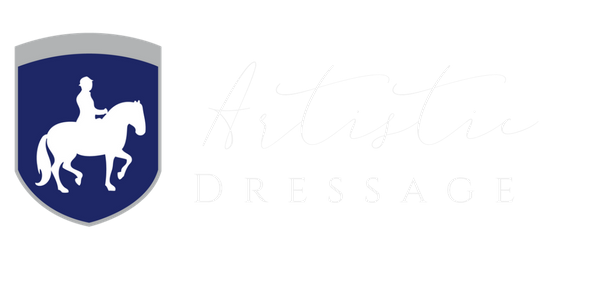In one of our online courses a participant recently felt discouraged because she thought that she and her horse had become worse. This is a feeling we are probably all familiar with. But it’s not always accurate. Sometimes we don’t realize how much we have already learned and how much we have improved. Our quality standards and our awareness have grown faster than our skills, and so we feel like we are riding worse than ever, although in reality we are riding better than we used to be, just not as well as we would like.
Here are some of my thoughts on this topic:
There are several aspects to this issue. In my own experience every new learning cycle has started with me becoming aware of problems that had always been there, but that I hadn't noticed up until then (Ignorance really is bliss).
When my awareness and theoretical knowledge had expanded so that I noticed them, I became intensely unhappy and felt like the worst rider in the world.
Then I went to work to conquer these issues. Oftentimes this involved reinventing my seat from scratch. The new seat felt horrible and awkward at first, and I felt like I was getting much worse.
But once I had become used to the new way of sitting and riding, I was able to progress to a higher level than before. For a little while, my awareness and my skill level matched each other, and life was good.
And then my awareness and understanding increased, and the cycle started over.
After a number of years I realised that these periods where I felt like I couldn't ride at all meant that I was about to learn something new and important and that I was about to have a breakthrough. Then I didn't feel so bad about myself anymore. I also realised that each version of my seat and aids could only take me to a certain level. In order to break through to the next level, I had to disassemble myself completely, like an engine that doesn't run well, examine every single piece, discard the broken ones that no longer work, replace them with new pieces, and then reassemble everything and then try to get used to the new feel, the new balance, the new muscles I was using, etc. Since the new muscle coordination is still foreign at first, it can happen that we actually do ride worse for a little while, until this new coordination becomes the new normal.
Another aspect is that progress is addictive. We get used to it very quickly. We take it for granted and assume subconsciously that there will be a linear ascent. But in reality, progress takes place in fits and starts. There are growth phases and plateaus. Plateaus can feel like you're sliding backward. It's a little like when a construction crew puts all the dirt from an excavation into a big pile. The pile grows quickly, and then it starts to settle, which makes it smaller because the material gets condensed. Learning seems very similar. You may make big breakthroughs occasionally, and then you have to consolidate the new skill and the new knowledge. These consolidation and plateau phases can be intensely frustrating because you feel like you're stuck or actually getting worse. At least, that's how I experienced it. The plateau phases are very important, though. They are not glamorous or spectacular. They are more like "chopping wood and carrying water" from a Zen perspective. Honing elementary skills, practicing the basics. But eventually these humble basics add up to tempo changes and zigzag half passes, or piaffe and passage. Sometimes you see the progress you have made only after you are able to put together these humble little elementary pieces into something big and prestigious.
Stopping and looking back at how far you have come is sometimes very healing because it makes you realise how much you have progressed without noticing, because you have taken the progress for granted.
Yet another aspect of this is that our exercises have a diagnostic element and a therapeutic element. It is quite possible (and perfectly normal) that our exercises bring out issues that have been there for a long time, but that were not so visible in your previous riding routine: If you don't ask certain questions, you don't notice that the horse doesn't know the answer to them - but the horse also won't learn the right answer.
That's why the first couple of attempts at a new exercise often don't look or feel very pretty, but they reveal important knowledge gaps. They give us something to do.
I sometimes used to joke that if horse and rider were able to do everything perfectly, there would be no point in riding any more, because we could only make it worse. As long as there is something that isn't perfect we have something to do, and we can work on improving ourselves and the horse.
Eric Clapton said something very similar in an interview a long time ago. He said that if he were able to play everything and play it perfectly, there would be no point in playing guitar anymore. But as long as he felt that he still had things that he needed to learn and improve, he would keep on playing.
With the repetitions of the exercises, both horse and rider have a chance to reflect on the exercise, the balance, the technique, etc., so that it gets better over time.

